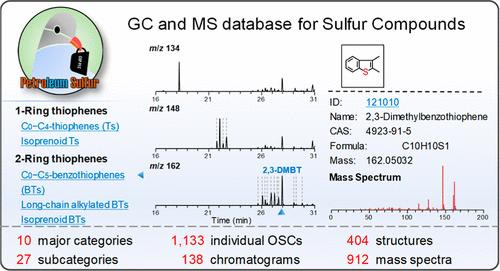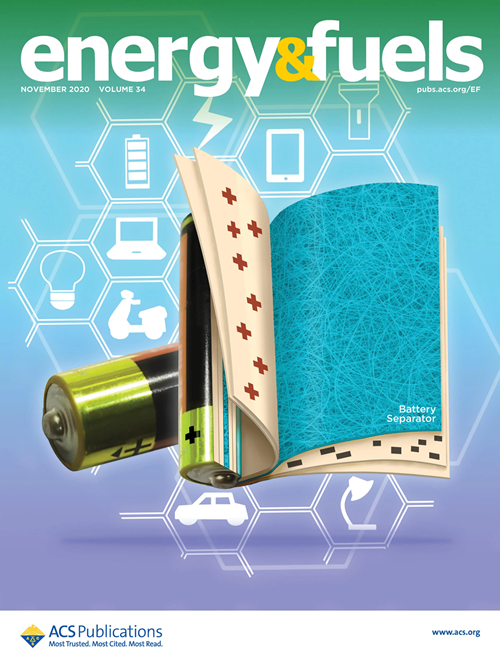PetroSulfur: A Gas Chromatography and Mass Spectrometry Database of Organic Sulfur Compounds in Petroleum
IF 5.3
3区 工程技术
Q2 ENERGY & FUELS
引用次数: 0
Abstract
Organic sulfur compounds (OSCs) are important components of petroleum, which have attracted the attention of both upstream and downstream of the petroleum industry for decades. Here, we introduce PetroSulfur, a database providing gas chromatography–mass spectrometry (GC–MS) data of OSCs in petroleum. In this work, the OSCs in representative crude oils as well as naphtha and diesel fractions were well characterized through the methylation/demethylation and column chromatography separation, followed by GC and GC–MS analyses. A total of 1133 individual OSC compounds were included in the database, which were divided into 10 major categories and 27 subcategories. Furthermore, a total of 138 chromatograms and 912 mass spectra were provided. All of the data were uploaded to a self-built MySQL database, and Python Flask is used for server operation and management. The users can use the PetroSulfur database to retrieve data according to the OSC information, including name, formula, molecular weight, characteristic ion, and SMILES code. The PetroSulfur database also provides an online chromatogram set, which allows direct viewing of the chromatograms and the identifiable OSCs therein according to the target OSC type. The PetroSulfur database will become a powerful and convenient reference for researchers in the field of petroleum chemistry to analyze and research OSCs in petroleum. The database Web page is now available online: https://pec.cup.edu.cn/PetroSulfur/.

石油硫:石油中有机硫化合物气相色谱和质谱数据库
有机硫化合物(OSCs)是石油的重要成分,几十年来一直受到石油行业上下游的关注。在此,我们介绍一个提供石油中有机硫化物气相色谱-质谱(GC-MS)数据的数据库 PetroSulfur。在这项工作中,通过甲基化/脱甲基化和柱层析分离,然后进行气相色谱和气相色谱-质谱分析,对代表性原油以及石脑油和柴油馏分中的 OSCs 进行了充分表征。数据库共收录了 1133 种 OSC 化合物,分为 10 大类和 27 小类。此外,还提供了 138 份色谱图和 912 份质谱图。所有数据都上传到自建的 MySQL 数据库,服务器的运行和管理使用 Python Flask。用户可使用 PetroSulfur 数据库,根据 OSC 信息(包括名称、分子式、分子量、特征离子和 SMILES 代码)检索数据。PetroSulfur 数据库还提供在线色谱图集,可根据目标 OSC 类型直接查看色谱图和其中可识别的 OSC。PetroSulfur 数据库将成为石油化学领域研究人员分析和研究石油中 OSCs 的强大而便捷的参考工具。该数据库网页现已上线:https://pec.cup.edu.cn/PetroSulfur/。
本文章由计算机程序翻译,如有差异,请以英文原文为准。
求助全文
约1分钟内获得全文
求助全文
来源期刊

Energy & Fuels
工程技术-工程:化工
CiteScore
9.20
自引率
13.20%
发文量
1101
审稿时长
2.1 months
期刊介绍:
Energy & Fuels publishes reports of research in the technical area defined by the intersection of the disciplines of chemistry and chemical engineering and the application domain of non-nuclear energy and fuels. This includes research directed at the formation of, exploration for, and production of fossil fuels and biomass; the properties and structure or molecular composition of both raw fuels and refined products; the chemistry involved in the processing and utilization of fuels; fuel cells and their applications; and the analytical and instrumental techniques used in investigations of the foregoing areas.
 求助内容:
求助内容: 应助结果提醒方式:
应助结果提醒方式:


